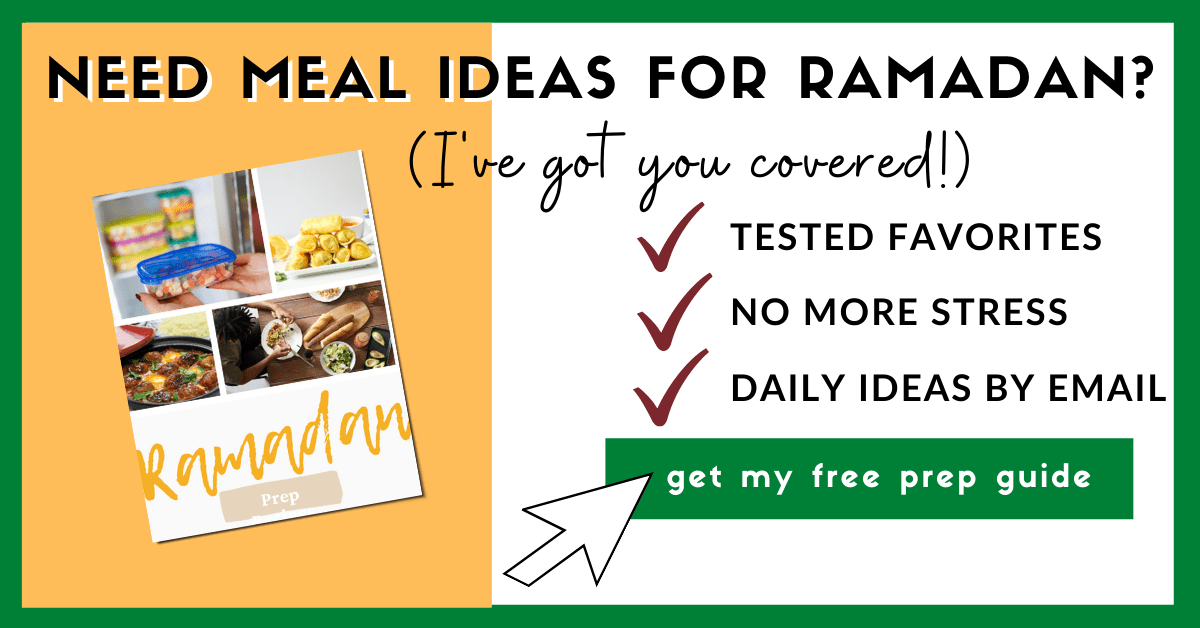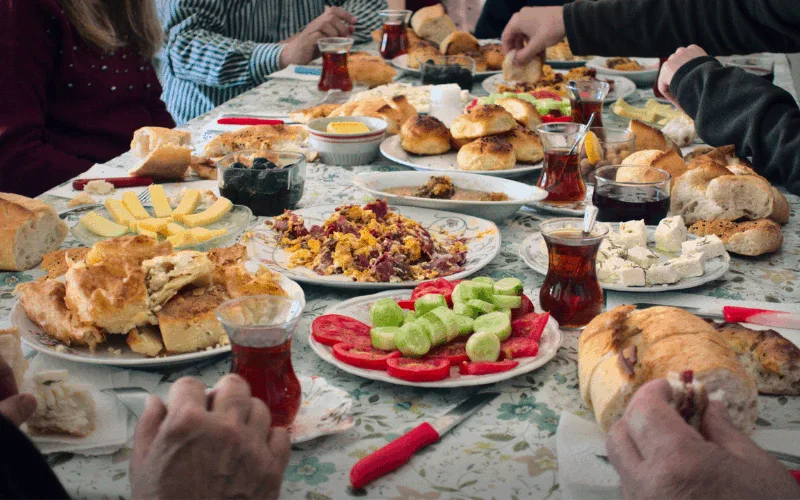As someone who has had bariatric surgery and now fasts on occasion, I can share with you some of my best tips, but, please bear in mind this is not medical advice. It is only my own personal experience, and yes, some of it was advised by doctors, but it was advised for me and my body’s individual needs. Here is how I find it best to manage Ramadan with a gastric sleeve.
Firstly, I could not fast the first Ramadan after my surgery. It’s recommended to wait 12-18 months before attempting fasting, so go straight to your doctor and check if this year you will be able to fast or not. Now that I can fast again, I take things day by day. Some days I do get by ok while other days my body is not able to handle it.

I am completely at peace with this being the way things are. I plan for Ramadan with a lot of checking in with how I am feeling and giving myself a lot of grace. Otherwise, I will get sick, I will suffer, the family will suffer, the business will suffer, and so on. Fasting is not meant to harm you, and if it is doing so, stop.
DISCLAIMER: This is not medical advice. You should ALWAYS consult with your doctor before fasting.
Hydration

Dehydration is a major concern for people with a gastric sleeve. Use every tool you have to stay hydrated. The traditional sunnah of breaking fast with dates and water is ideal as it gives an instant sugar boost and gets rehydration started. Then hopefully you will be in a better mind frame to plate up your iftar. I keep a variety of dates in the house so I never get bored with eating them everyday.
It’s best to not mix your solid foods with beverages, which is another sunnah. So consider hydrating foods to break your fast with, such as protein rich soups and smoothies. With needing to wait 30 minutes before and after to drink water, I have heard some people set an alarm to remember to drink. If you need to do this, do it. Hydration is hard enough to achieve during Ramadan, and imperative with a gastric sleeve.
Also, avoid being in the sun, especially working or working out in it, as it will dehydrate you.
Exercise

Working out is another especially tricking issue for us as it increases our risk of dehydration. Just as you can’t expect to gain much muscle during Ramadan, maybe you can consider a maintenance approach to your Ramadan exercise routine. I know it’s hard to think about, but perhaps light exercising or walking is the best way to go. It’s critical that you listen to your body.
The third or fourth day of Ramadan is usually when people start to miss those daytime calories, feeling sluggish and a little cranky. Check in with yourself on these days.
- Are you excessively thirsty?
- How are your bowel movements? And what color is your urine?
- How are your energy levels?
Continue to access these things as the month progresses and adjust yourself as needed. Remember, it’s only one month out of twelve. You may have to make more sacrifices than you like.
Eating Out

Whether we are invited to someone’s house for iftar or eating out for the night, I know there will be extra temptations that aren’t the best choices for me. I avoid this problem by sticking to protein first. Plate up with good protein-rich choices, then vegetables, then grains. This way I am usually full before I fill up on items that won’t have a long lasting effect.
Back to Basics
Every bite you take this month is critical. Eating too much, too fast, the wrong things – you know this will make you sick. For me, back to basics means:
- Chewing really well to help with digestion.
- Critically accessing every option. Is the food nutrient dense? Is it protein heavy?
- Avoiding fried and greasy foods, these are for occasional treats only.
- Spacing out my meals like a well-paced athlete.
Plenty of people like to brag about “just eating one meal during Ramadan” but that would make me very sick. I pace myself, drinking plenty of water in between what is basically three to four meals consisting of breaking fast (dates and fruits), soup or smoothie, then iftar with my family and suhoor. Again, hydration can easily be the biggest problem you face while fasting.
Vitamins are a Must

Even when being careful about eating nutrient-rich foods, it’s still good to continue taking multivitamins and especially so in Ramadan.
Your best option this month is to listen closely to your body. If something makes you nauseous, don’t do that again. If your hydration is dipping, take in more water or even electrolytes. If taking care of too many other needs means neglecting yours, cut back or delegate. If you can fast this Ramadan, you deserve the blessings of the month, but don’t need the extra hardship.
References I used include; Ramadan after Bariatric Surgery and How to Fast After Bariatric Surgery
